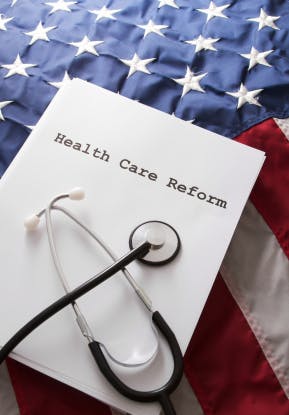By Garrett Fenton
Last March, the U.S. Department of Labor issued Technical Release 2011-01, which modified and extended its previously-announced “enforcement grace period” for certain requirements imposed upon employer-sponsored health plans under the health care reform legislation enacted last year (the Patient Protection and Affordable Care Act, or PPACA).
This grace period has generally been praised as welcome relief from some of the near-term PPACA requirements, as many of the requirements, which can be rather far-reaching and burdensome to implement, appear to be in a state of flux at this time.
New grace period runs until July 1, 2011
One of PPACA’s provisions requires all employer-sponsored health plans that do not meet the strict requirements to be “grandfathered” under PPACA to implement certain enhanced procedures for internal claims and appeals — and in some cases, independent “external reviews” — that apply whenever a covered employee or dependent is denied payment for all or a portion of a medical claim (which could range, for example, from a co-payment imposed for a routine doctor visit to a denial of coverage, or even the imposition of co-insurance or a deductible, for a major medical procedure or hospital stay).
These new requirements became effective for “plan years” beginning on or after September 23, 2010, which for most employers means they began to apply on January 1, 2011. If an employer-sponsored health plan fails to comply with any of the new requirements, the employer could be subject to a penalty tax of up to $100 per day, per affected employee or dependent. In addition, an employee or dependent may be entitled to sue the employer in federal court, and even recover attorney’s fees.
In response to numerous comments from employers, trade associations, and other interested parties, expressing serious concerns about the ability of employers (or their insurers, if applicable) to implement the newly-required procedures before PPACA’s deadline, the DOL issued Technical Release 2010-02 on September 20, 2010, which announced that employers and insurers would be granted a “grace period” until July 1, 2011 to come into compliance with some of the more onerous requirements.
What the grace period applies to
Specifically, the grace period applied to:
- A new requirement that plans provide employees or dependents a notice of a decision on an “urgent care” claim within 24 hours,
- A new requirement to make “adverse benefit determination notices” (such as explanations of benefits, or “EOBs”) and certain telephone customer assistance available in a non-English language, if a specified percentage of covered employees and dependents are literate in that language,
- A provision that allows employees or dependents to immediately request an independent “external review,” or bring a lawsuit in some cases, if an employer-sponsored health plan fails to strictly comply with all of the new requirements, and
- Various additional content requirements for adverse benefit determination notices/EOBs.
The U.S. Departments of Health and Humans Services and the Treasury joined the DOL’s pledge not to enforce these provisions — until July 1, 2011 — against an employer (or insurer) that was at least “working in good faith” to implement them.
DOL extends grace period again – to Jan. 1, 2012
In the recent guidance, the DOL announced an extension and modification of this grace period, to “act as a bridge” until the DOL, HHS, and the Treasury (the “agencies”) — in response to a number of comments and other feedback received from various interested parties — have a chance to amend the federal regulations implementing these requirements, which were issued in July 2010.
Specifically, the DOL extended the grace period for the requirements listed above until, for most plans, January 1, 2012. (For plans that do not operate on a calendar year basis, the grace period could end earlier or later than January 1, 2012, and could end at different times with respect to different requirements.) The guidance also clarified that employers and insurers are no longer required to be “working in good faith to implement” the applicable requirements in order for the grace period to apply.
The extended grace period provides some level of relief for employers, most of which will not need to worry about the agencies enforcing (i.e., imposing penalties for failures to comply with) the specified requirements for at least another several months, regardless of whether any steps have been taken to implement those requirements in the meantime.
However, it is important to emphasize that the grace period does not prevent an employee or dependent from bringing a lawsuit against an employer for failing to comply with any or all of the applicable requirements as of their original effective date (which, again, was January 1, 2011 for most employer-sponsored health plans).
Accordingly, employers must consider the risks carefully in determining the time and manner of implementing the various new claims and appeals requirements, if they haven’t already done so.
